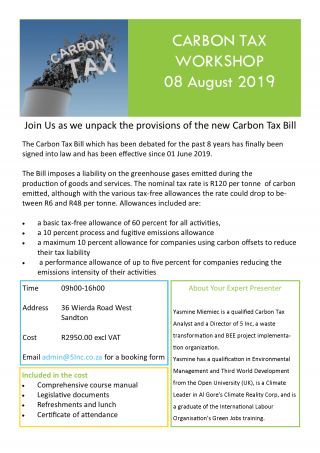Hydrogen, financing the energy transition and climate change in focus at high-level discussions at Enlit Africa next month
Can Africa carve out a role for itself in the burgeoning hydrogen market? How do cities climate proof their energy sectors and water systems? Where will the funding come from for the 5Ds of the energy transition?
These are just some of the pertinent questions and topics up for discussion during the upcoming Enlit Africa, taking place from 8 to 10 June, featuring live sessions with the sector’s leading minds. The online platform will be opened with a welcome address by South Africa’s mineral and energy resources minister, Gwede Mantashe.
Hydrogen
“Countries such as South Africa and Kenya already have the infrastructure in place which can be leveraged to take advantage of green hydrogen both for production and export,” says Hendrik Malan, partner and Africa CEO at Frost & Sullivan Africa and moderator of the upcoming session on: The role of Africa in the global hydrogen-generation market.
“Hydrogen, specifically green and blue,” he explains, “has the potential to considerably accelerate sub-Saharan Africa’s electrification rate. Furthermore, through export of this green resources, local economies can be strengthened, driving job creation, and establishing countries as key suppliers ahead of the rest of the world.”
According to Malan, while hydrogen is still in the R&D and early implementation phase, governments already need to put the respective legislation and regulations in place to enable fast implementation.
Climate change
Climate change and its effect on the future of the energy sector is a critical theme that forms a thread throughout the Enlit Africa programme. From the opening session’s panel that will focus on the 5Ds of the energy transition – namely decarbonisation, decentralisation, democratisation, digitalisation and deregulation – to how African governments are currently devising their own climate change policies.
“We all know that the global community has decided to cap global warming at 1.5 degrees. The consequences of an overshoot are too catastrophic to contemplate and so we need to invest more in adaptation strategies,” says Dr Roland Nkwain Ngam, programme manager for climate justice and socio-ecological transformation at the Rosa Luxemburg Foundation.
Ngam, who is speaking in the Climate finance - adaptation and mitigation session, adds: “Coal power is killing us and we need to force polluters to pay their fair share for adaptation activities.”
Enlit Africa will also feature an exclusive interview with City of Cape Town executive director Kadri Nassiep on how the City of Cape Town is addressing climate change.
More exciting speakers and moderators on the programme include:
- Ashish Khanna, Practice Manager: West and Central Africa, World Bank, USA
- Sabine Dall'Omo, CEO, Siemens, South Africa
- Dr Albert Butare, a former Minister of State for Infrastructure in the Republic of Rwanda and currently the CEO of Africa Energy Services Group Ltd
- Gillian-Alexandre Huart, CEO, ENGIE Energy Access, Belgium
- Dr Jarrad Wright, Principal Researcher, Council for Scientific and Industrial Research (CSIR), South Africa
- Mandy Rambharos, GM: Just Energy Transition Office, Eskom, South Africa
- Ashish Kumar, Head of Innovation, Shell Foundation, United Kingdom
- Tobi Busari, Team Lead: Embedded Generation and Renewable Energy, Ibadan Electricity Distribution Company, Nigeria
Further session highlights at Enlit Africa:
- The realities of incorporating small scale embedded generation (SSEG) into a local distribution grid
- The business case for a circular economy
- Training: Fundamentals of PV systems with energy storage
- Managing revenue losses – Nigeria’s turnaround in collections despite a challenging economic environment
- How solar PV is changing the commercial and industrial energy landscape
- Bringing renewables onto the grid: G-PST Consortium presentation
- Case study: Preparing for how mini grids meet the national grid
- How gas can enable the decarbonisation of the power sector in sub-Saharan Africa
- Interview: The first solar IPP in Burundi
All content will also be available on demand following the live broadcasts.
Same inspiration, different look
Enlit Africa, taking place from 8 to 10 June, is the new brand for the Cape-town based African Utility Week and POWERGEN Africa conference and exhibition, which for more than 20 years has been the flagship power and energy show for the continent’s energy sector. The event had two very successful, interactive digital editions last year and rebranded in November 2020.
Industry support
Eskom, the Department of Mineral Resources and Energy and the City of Cape Town have been official hosting partners of the event for many years and 2021 is no different.
Global and local top technology and services suppliers to the industry, including Siemens, IFS, SAS, G3-PLC, GE, Toshiba and Conlog are returning as sponsors at Enlit Africa. Other industry supporters are Prime Alliance, WESGRO, City of Cape Town, and Ntiyiso Consulting and many more.
ESI Africa, the continent’s leading news provider for power and energy news, is the official host publication while the Enel Foundation is back as the knowledge partner.
Enlit Africa is organised by Clarion Events Africa, a multi-award-winning Cape Town-based exhibition and conference producer across the continent in the infrastructure, energy and mining sectors. Other well-known events include Nigeria Mining Week, Africa Mining Forum and DRC Mining Week.
Enlit Africa dates and venues:
Digital Event: 8 - 10 June 2021
Next live, in-person conference and exhibition: 7 – 9 June 2022
Venue: CTICC, Cape Town, South Africa
Website: www.enlit-africa.com
Media contact:
Annemarie Roodbol
Email: This email address is being protected from spambots. You need JavaScript enabled to view it.
5Inc Unpacks the Carbon Tax Act
Lets Unpack the Carbon Tax Act
Why was it implemented?
South Africa is the 15th largest pollution emitter in the world! This is contributing hugely to climate change which is affecting many South Africans, particularly the poor and those in the agricultural sector. It is clear that we need to change this figure and putting a price on carbon is one way to do this.
What is the Carbon Tax?
Carbon tax will be levied on the sum of greenhouse gas emissions from fuel combustion, industrial processes, and fugitive emissions which are above the threshold for that activity. Who will the Tax be paid to? Companies liable for the Tax will submit a report to the Department of Environmental Affairs and pay the tax to SARS.
When is it due?
The first submission is due on 31st December 2019 and will be payable by 31 March 2019. Thereafter, the tax period will be January-December with payment having to be made 2-3 months after period end.
What is the tax rate?
The nominal rate is R120 per tonne of carbon dioxide equivalent. However, with the numerous tax-free allowances, the rate could reduce to R6-R48 per tonne.
Why should your company start planning for a low-carbon future?
The period 2019-2022 is the introductory period for the Tax and the regulations are relatively lenient. However, this will probably change in 2022 with the COe rates being higher and more companies being liable.
Lower-carbon options will be become more competitive, because they are subject to less tax and therefore priced lower. Many companies paying the tax will add it to the cost of their products. Customers will then choose cheaper, lower-carbon goods and services.In business, 95% of the value of the business is vested in its brand. Eco-conscious customers will support the company with the strongest ‘green’ brand.
Carbon Tax Workshop 08 August 2019
Join Us as we unpack the provisions of the new Carbon Tax Bill
The Carbon Tax Bill which has been debated for the past 8 years has finally been signed into law and has been effective since 01 June 2019.
The Bill imposes a liability on the greenhouse gases emitted during the production of goods and services. The nominal tax rate is R120 per tonne of carbon emitted, although with the various tax-free allowances the rate could drop to between R6 and R48 per tonne.
Allowances included are:
- a basic tax-free allowance of 60 percent for all activities,
- a 10 percent process and fugitive emissions allowance
- a maximum 10 percent allowance for companies using carbon offsets to reduce their tax liability
- a performance allowance of up to five percent for companies reducing the emissions intensity of their activities
Time: 09h00-16h00
Address: 36 Wierda Road West, Sandton
Cost: R2950.00 excl VAT
Email: This email address is being protected from spambots. You need JavaScript enabled to view it. for a booking form
Included in the cost
- Comprehensive course manual
- Legislative documents
- Refreshments and lunch
- Certificate of attendance
About Your Expert Presenter
Yasmine Miemiec is a qualified Carbon Tax Analyst and a Director of 5 Inc, a waste transformation and BEEE project implementation organization.
Yasmine has a qualification in Environmental Management and Third World Development from the Open University (UK), is a Climate Leader in AI Gore's Climate Reality Corp and is a graduate of the International Labour Organisation's Green Jobs training.
CNN’s Eleni Giokos to moderate African Utility Week and POWERGEN Africa opening session and climate change debate
CNN’s Business Africa Correspondent, Eleni Giokos, will be the moderator of the opening session of the African Utility Week and POWERGEN Africa conference and exhibition that is taking place in Cape Town from 14-16 May.
The keynote addresses will be delivered during the opening session on Tuesday 14 May by:
09:40-10:00: Host Utility Welcome address Phakamani Hadebe, Chief Executive, Eskom, South Africa
10:00-10:30: Swedish Ministerial Address Niklas Johansson, State Secretary Ministry of Foreign Affairs, Sweden
10:30-11:00: Host ministerial and VIP opening addresses Hon Jeff Radebe, Minister of Energy, Department of Energy, South Africa
Debate on climate change After the break at 12:15, Ms Giokos will lead the panel discussion on: “Advancing global efforts to address and manage the impacts and risks of climate change.”
Panellists:
- Anton Eberhard, Professor: Management Programme in Infrastructure, Reform and Regulation, Graduate School of Business, University of Cape Town, South Africa
- Saliem Fakir, Head of Policy and Futures Unit, World Wide Fund, South Africa
- Mark Swilling, Programme Coordinator, Sustainable Development Programme in the School of Public Leadership, South Africa
- Kai Kaatra, DDG for Natural Resources in Ministry of Agriculture and Forestry, Finland
Earlier this year, the African Utility Week and POWERGEN Africa entered into a media partnership with the global news organisation and broadcaster CNN. The 19th edition of this leading conference and exhibition is expected to attract more than 10 000 energy and water professionals this year.
International pavilions
Apart from the official U.S. country pavilion at African Utility Week and POWERGEN Africa showcasing specialised technology and services for the utility, metering, renewable and water industries, country pavilions from Brazil, Canada, China, Denmark, France, Germany, India and Poland have also already confirmed their presence at the 3-day event in May.
Industry support
A multi-award-winning conference and exhibition, African Utility Week and POWERGEN Africa has secured the support from industry stalwarts including Conlog, Dromex, GE, Landis+Gyr, SAP, Sumitomo and Utility Systems as platinum sponsors and Aberdare, ADC Energy, Rosatom, Sulzer and Toshiba as gold sponsors.
African Utility Week and POWERGEN Africa is the flagship energy event organised by Spintelligent, a multi-award-winning Cape Town-based exhibition and conference producer across the continent in the energy, infrastructure, mining and agriculture sectors. Other well-known events by Spintelligent include Future Energy East Africa, Future Energy Nigeria, the Utility CEO Forums, Agritech Expo Zambia, Nigeria Mining Week and DRC Mining Week. Spintelligent is part of the UK-based Clarion Events Group and African Utility Week and POWERGEN Africa form part of Clarion Energy, which runs over 40 events that cover the oil, gas, power and energy sectors, making it one of Clarion Events’ largest portfolios.
Dates for African Utility Week and POWERGEN Africa:
Conference and expo: 14-16 May 2019
Site visits: 17 May 2019
Location: CTICC, Cape Town, South Africa
Website: http://www.african-utility-week.com
Twitter: https://twitter.com/AfricaUtilities #AUW2019
Linkedin: African Power Forum
Contact: Senior communications manager: Annemarie Roodbol
Telephone: +27 21 700 3558 Mobile: +27 82 562 7844
Email: This email address is being protected from spambots. You need JavaScript enabled to view it.
"Choking" on clean air goals a reality check
By Dr Martin van Nierop - Gondwana Environmental Solutions
South Africa is in danger of ‘choking’ in its bid to meet specific clean air goals, but failure to hit early targets may result in greater pragmatism and yet lead to air quality gains, according to Gondwana Environmental Solutions.
The environmental management services company has cautioned against “excessive pessimism” as the 10th anniversary of South Africa’s first declarations of priority areas for air quality management reveals no noticeable improvement in the targeted areas of the Vaal Triangle Airshed Priority Area (VTAPA), the Highveld Priority Area (HPA, including Ekurhuleni, Witbank, Middleburg and Secunda) and Waterberg-Bojanala Priority Area (including Lephalale, Rustenburg and Brits).Dr Martin van Nierop, co-founder of the Roodeport-based Gondwana Group, noted: “The priority areas were declared from November, 2007, under the Air Quality Act of 2004.
“Air quality readings differ according to the time of year, but monitoring by government and interested parties indicates no significant improvement while an in-depth report on the Highveld by one NGO suggests significant exceedances of permissible levels.“Therefore, toxic levels of air pollution continue to pose health risks in heavily industrialised areas. Clearly, more needs to be done. However, considerable progress has been made with the preparatory work that is essential if we are serious about clean air.
Build on these gains and significant improvement becomes possible.”He listed five ‘wins’:A robust legal framework is in place following the overhaul of South Africa’s air pollution legislation and the definition of National Ambient Air Quality Standards (NAAQSs)Representative stakeholder groups – “from polluters to pressure groups” – have been formed in the three priority areas Comprehensive air quality management plans (AQMPs) have been developed in each priority areaKnown industrial polluters are working on offset programmes to improve air quality while investigating a clean-up of their own processesWeaknesses in official monitoring and control have been identified. “While we are concerned about pollution, and need to improve urgently, excessive pessimism is unwarranted,” said Dr Van Nierop.
“If we’re pragmatic, we can move forward. Setbacks are often accompanied by gains.“For instance, the National Air Quality Officer has granted big polluters like Eskom and Sasol a postponement of their duty of compliance with the Air Quality Act, complicating the task of achieving clean air. But we now see major enterprises looking to fund offset programmes to cut pollution from non-industrial sources such as domestic cooking and heating, giving immediate health benefits to those most affected“Stakeholder groups and AQMPs give us the mechanisms to drive progress and maintain pressure on industrial groups. We have to be practical.
We can’t close down Eskom, Sasol and other big contributors to the economy, but we can co-opt them as contributors to the work of air quality improvement.”He believed the 10-year reality check shows that a strategic vision, like that of the Paris Agreement on climate change – signed by the South African government – must be accompanied by pragmatism and practical steps.
“In the present case,” said Dr Van Nierop, “we can see that monitoring and enforcement of air quality regulation by local authorities is inadequate. Municipalities either do not have the inspectors or their personnel lack the training and equipment to carry out inspections. Yet building official capacity is critical to priority area management processes.“It is therefore vital government make available funding and resources to local authorities so they can ensure compliance with AQMPs. Stakeholder groups can simultaneously keep awareness high and work with all interested parties to drive every possible improvement.
“To achieve clean air, we must clear every obstacle out the way, and we’ve made a start.”
Gondwana Environmental Solutions 011 472 3112 www.gondwanagroup.co.za
This email address is being protected from spambots. You need JavaScript enabled to view it. By GondwanaGroup|November 13th, 2017





